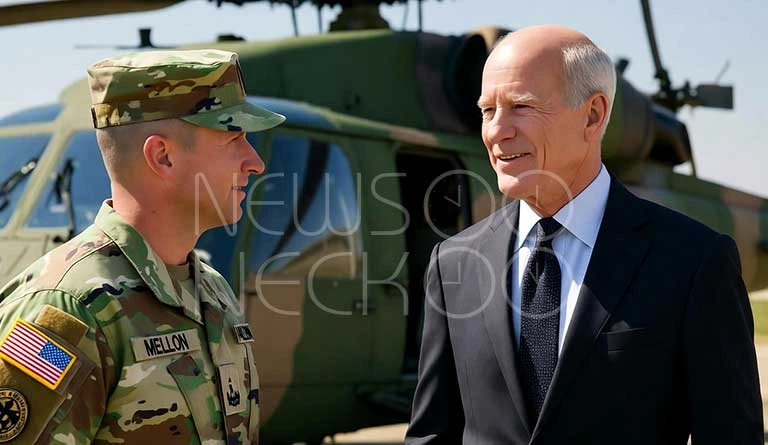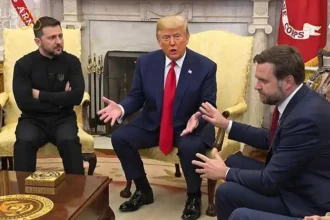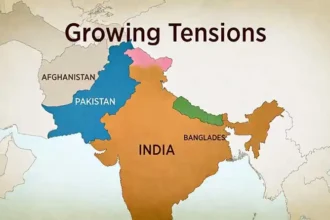The $130 Million Question: A Secret Donor, Our Military, and a Legal Gray Zone
He was the mystery man with a massive check, a sudden solution announced from the White House podium. President Donald Trump stood before the nation and revealed a “great patriot” had donated a staggering $130 million to pay U.S. troops during a painful government shutdown.
But the president refused to give a name. The donor, he said, was a friend and a wonderful man who shunned the spotlight.
That mystery is now solved. And the answer raises as many questions as it resolves.
The New York Times reported Saturday that the donor is Timothy Mellon, a billionaire heir to one of America’s most legendary banking fortunes. But the revelation pulls back the curtain on a drama filled with legal doubts, mathematical reality checks, and deep concerns about the very idea of private citizens funding the U.S. military.
Who is Timothy Mellon?
Mellon is not a public figure. He is a railroad magnate who lives largely out of view, an heir to the fortune built by his grandfather, Andrew Mellon, a titan of the Gilded Age who served as U.S. Treasury Secretary for over a decade.
Despite Forbes estimating his net worth at nearly $1 billion, Mellon has pushed back on the title. In a 2024 email, he wrote, “Billionaire NOT! … Never have been, never will be.”
What is not in dispute is his strong support for Donald Trump. The Times reported that Mellon contributed a massive $50 million to a super PAC supporting Trump’s reelection, one of the largest single donations ever disclosed.
This context makes the $130 million donation more than a simple act of charity. It is a political act from a powerful political supporter.
A Grand Gesture Meets a Giant Price Tag
When President Trump announced the donation, it sounded like a financial lifeline for the more than 1.3 million active-duty troops going without pay during the shutdown.
But the hard numbers tell a different story.
While $130 million is an enormous amount of money, it is a drop in the bucket for the U.S. military payroll. It costs nearly $6.4 billion to pay all troops for just a two-week period. Mellon’s donation, when divided among every service member, works out to only about $100 per person.
It is a symbolic gesture, but it is far from a solution.
You Might Like it: Trump–Letitia James Case: Political Warfare in Court
The Legal Shadow Hanging Over the Donation
Perhaps the most serious issue is a legal one. According to The New York Times, using this money might violate a federal law called the Antideficiency Act.
This law is a cornerstone of how the U.S. government controls its money. It strictly forbids federal agencies from spending any money that has not been officially approved and allocated by Congress. The principle is simple: the power of the purse belongs to the people’s elected representatives, not to the executive branch and certainly not to private individuals.
If the Pentagon accepts and uses Mellon’s money, it could be breaking this law, creating a constitutional crisis over the funding of America’s armed forces.
This prospect alarms lawmakers. A spokesman for Senator Chris Coons, a Democrat from Delaware, expressed deep concern. “Using anonymous donations to fund our military raises troubling questions of whether our own troops are at risk of literally being bought and paid for by foreign powers,” the spokesman told NBC News.
The fear is that this sets a dangerous precedent. If one wealthy donor can pay the military, what stops another, potentially with hidden foreign ties, from doing the same to gain influence?
The identity of the mystery man is no longer a secret. But the consequences of his $130 million check are just beginning to unfold, creating a legal and ethical storm that reaches to the very heart of how American democracy functions.
Read the complete NYTimes report here.
Author: Yasir Khan
Date: 25 Oct, 2025
For More Updates, Visit Newsneck













